11 Top Natural Herbal Testosterone Booster Today
Although there are literally hundreds of ways to boost and maintain your testosterone levels (check out our 99 point list!), one of the most efficient can be herbal testosterone booster. It’s important to know what you’re buying and make sure there’s some science behind the herbs you take. There are some fads and fakes out there, of course, but there are also plenty of testosterone supplements that the FDA does not regulate and can promise you anything. Here is a list of natural solutions that have been used for thousands of years.
Popular Natural Herbal Testosterone Booster
Here are 11 of our favourite herbal testosterone booster. Rather than sticking with one, we recommend cycling. Get a bottle of one, and when it’s done, try something else. You’ll quickly figure out what works best for your body, and changing things up will actually let them work better. Learn to listen to your body!
 Herbal Testosterone Booster #1: Malaysian Ginseng (Eurycoma Longifolia)
Herbal Testosterone Booster #1: Malaysian Ginseng (Eurycoma Longifolia)
This well-known herbal testosterone supplement is native to Malaysia, Indonesia, and Vietnam. In the past, it has been used to treat malaria, diabetes, and even high blood pressure. The science is out on that, but recent research has shown that it does stimulate testosterone production.
Consult a medical professional before taking Malaysian Ginseng, as excessively large doses can cause organ damage.
 Herbal Testosterone Booster #2: Puncturevine (Tribulus Terrestris)
Herbal Testosterone Booster #2: Puncturevine (Tribulus Terrestris)
This tropical plant is found growing in America, Europe, Asia, Australia, and Africa. Traditional medicine has used puncturevine to treat testosterone for many years, and modern science has tentatively supported the application. Some studies have shown that it increases testosterone enough to treat erectile dysfunction in animals, but human trials are still inconclusive.
Puncturevine can be taken as a pill or be used to make tea. As with all of these herbs, consult a doctor or medical professional before beginning a supplement regimen.
 Herbal Testosterone Booster #3: Ashwagandha (Withania Somnifera)
Herbal Testosterone Booster #3: Ashwagandha (Withania Somnifera)
Ashwagandha has been known and used for thousands of years in Ayurvedic (traditional Indian) medicine. The Ayurvedas use it as a testosterone supplement to treat infertility and erectile dysfunction. It has found renewed popularity today, and can be found in pill or tea form.
A study conducted in India concluded that Ashwagandha does improve sperm count and testosterone levels. Check with your doctor or medical professional before taking Ashwagandha, but it is highly recommended.
 Herbal Testosterone Booster #4: Yohimbe (Pausinystalia Yohimbe)
Herbal Testosterone Booster #4: Yohimbe (Pausinystalia Yohimbe)
The testosterone supplement known as Yohimbe is actually made from the bark of the West African yohimbe tree. The bark is renowned for its aphrodisiac qualities, and is still used to this day for sexual and erectile problems. Modern research supports the claim, and found that it does reduce sexual dysfunction. It can safely be taken concurrently with SSRIs, which can sometimes cause problems with libido and sexual desire.
Yohimbe may be taken as a tablet or tea. It is available in prescription strength, as it is approved by the FDA to treat sexual problems and low testosterone.
 Herbal Testosterone Booster #5: DHEA (Dehydroepiandrosterone)
Herbal Testosterone Booster #5: DHEA (Dehydroepiandrosterone)
DHEA is naturally produced by the human body, and is a crucial part of the testosterone production process. The hormone is made by the adrenal glands and converted into both estrogen and testosterone.
Low DHEA production is one potential cause of low testosterone levels, and supplementing it is indicated in some cases. Studies have shown that taking 50mg of DHEA each day improved their ability to maintain an erection. More studies are currently underway to determine if DHEA does, in fact, raise testosterone levels.
It is important to closely monitor the dosage of DHEA with the aid of a doctor, as it can reduce HDL (good) cholesterol.
 Herbal Testosterone Booster #6: Pine Bark Extract (Pinus Pinaster)
Herbal Testosterone Booster #6: Pine Bark Extract (Pinus Pinaster)
Made from the bark of Mediterranean pine trees, pine bark extract can be effective in lowering cholesterol, improving heart health, and treating erectile dysfunction. Recent research has shown that combining pine bark extract with L-arginine has a positive effect on testosterone production.
Pine bark is an over the counter herbal extract, but it’s still advisable to check with a doctor for any potential interactions. Dosages can range from 200mg to 300mg, or even higher depending on the specific case being treated.
 Herbal Testosterone Booster #7: Arginine (L-arginine)
Herbal Testosterone Booster #7: Arginine (L-arginine)
L-arginine is an amino acid that was first discovered in the 1880s. It actually does not boost testosterone on its own, but can be taken along with pine bark extract for potential beneficial effects. L-arginine can also be used to treat some symptoms of low testosterone by improving blood flow throughout the body.
L-arginine is available over the counter, with dosages ranging from 400mg to 6,000mg. A doctor can help determine the best dosage for your situation.
 Herbal Testosterone Booster #8: Zinc
Herbal Testosterone Booster #8: Zinc
Zinc is an important micronutrient that the body needs but does not produce naturally. Most people get enough zinc through food, but it can be helpful to supplement it as well. Zinc deficiency is a known cause of low testosterone, so zinc supplements can be very helpful in raising testosterone levels.
Zinc overdose can cause serious damage to the body in both short and long term, so consult with a medical professional before starting this or any supplement regimen.
 Herbal Testosterone Booster #9: Garlic (Allium sativum)
Herbal Testosterone Booster #9: Garlic (Allium sativum)
Yes, good old tasty, smelly garlic is extremely good for you! The health benefits of garlic have been known for centuries and confirmed in recent years. It treats a variety of blood ailments, including high blood pressure and hardened arteries.
A study conducted on rats found that garlic combined with a high-protein diet would stimulate increased testosterone production. Human testing hasn’t progressed far yet, but garlic is harmless and healthy. And delicious! Eat up!
 Herbal Testosterone Booster #10: Korean Red Ginseng (Panax ginseng)
Herbal Testosterone Booster #10: Korean Red Ginseng (Panax ginseng)
Also known as Chinese Ginseng, this is an unprocessed type of ginseng that actually grows all across Asia. The taproot of plants over 6 years old can be processed into supplements, including liquid extracts, pills and tea.
Studies are still being performed on Korean Red Ginseng, but in general they point to its efficacy in treating erectile dysfunction. That’s a common symptom of low testosterone, so the herb should have a place in the supplement cycle of anyone who is looking to raise their testosterone levels.
Research hasn’t shown any side effects or interactions of Korean Red Ginseng, but it’s still a good idea to check with a doctor first before starting this or any supplement.
 Herbal Testosterone Booster #11: Chrysin (Passiflora incarnate)
Herbal Testosterone Booster #11: Chrysin (Passiflora incarnate)
Chrysin is a naturally occurring flavonoid found in honey, propolis, and especially in blue passionflower. Chrysin supplements can be taken as a tea or pill, and typically consist of dried passionflower leaves.
Research studies dating back to 2001 have established Chrystin as eective in boosting testosterone production, as well as sperm count and motility, in rats. In humans, the science is a little less firm, but work is still underway. One issue is that Chrysin isn’t absorbed by the human body very well. It’s possible that a new form of the supplement may arrive in future that is more bioavailable.
Hormone Therapeutics aims to help people looking to improve and optimize their health through natural means or through the guidance of our physicians.
Don’t miss out our free weekly tips and news on Low T, hormone balancing, healthy living, nutrition and a lot more.
Want more?

Sign up today and Get our ebook, ‘Naturally Increase Your Testosterone Levels’ absolutely FREE.
11 Top Natural Herbal Testosterone Booster Today
28 October,2016Saleamp DesignSaleamp Design October 28th, 2016
Posted In: Testosterone Therapy
Tags: arginine, ashwagandha, chrysin, DHEA, garlic, herbal testosterone booster, korean red ginseng, malaysian ginseng, natural testosterone booster, pine bark extract, puncturevine, testosterone booster, testosterone herbs, testosterone nutrients, yohimbe, zinc


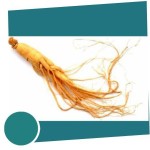 Herbal Testosterone Booster #1: Malaysian Ginseng (Eurycoma Longifolia)
Herbal Testosterone Booster #1: Malaysian Ginseng (Eurycoma Longifolia)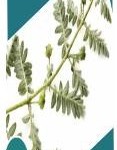 Herbal Testosterone Booster #2: Puncturevine (Tribulus Terrestris)
Herbal Testosterone Booster #2: Puncturevine (Tribulus Terrestris)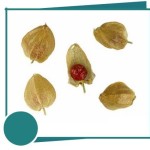 Herbal Testosterone Booster #3: Ashwagandha (Withania Somnifera)
Herbal Testosterone Booster #3: Ashwagandha (Withania Somnifera)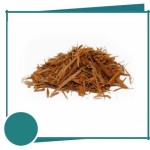 Herbal Testosterone Booster #4: Yohimbe (Pausinystalia Yohimbe)
Herbal Testosterone Booster #4: Yohimbe (Pausinystalia Yohimbe)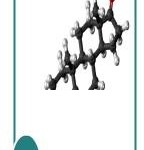 Herbal Testosterone Booster #5: DHEA (Dehydroepiandrosterone)
Herbal Testosterone Booster #5: DHEA (Dehydroepiandrosterone)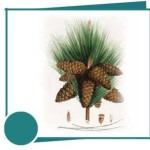 Herbal Testosterone Booster #6: Pine Bark Extract (Pinus Pinaster)
Herbal Testosterone Booster #6: Pine Bark Extract (Pinus Pinaster)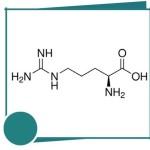 Herbal Testosterone Booster #7: Arginine (L-arginine)
Herbal Testosterone Booster #7: Arginine (L-arginine)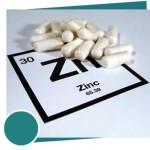 Herbal Testosterone Booster #8: Zinc
Herbal Testosterone Booster #8: Zinc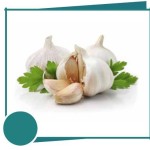 Herbal Testosterone Booster #9: Garlic (Allium sativum)
Herbal Testosterone Booster #9: Garlic (Allium sativum)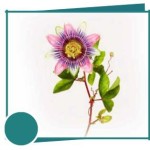 Herbal Testosterone Booster #10: Korean Red Ginseng (Panax ginseng)
Herbal Testosterone Booster #10: Korean Red Ginseng (Panax ginseng)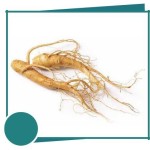 Herbal Testosterone Booster #11: Chrysin (Passiflora incarnate)
Herbal Testosterone Booster #11: Chrysin (Passiflora incarnate)